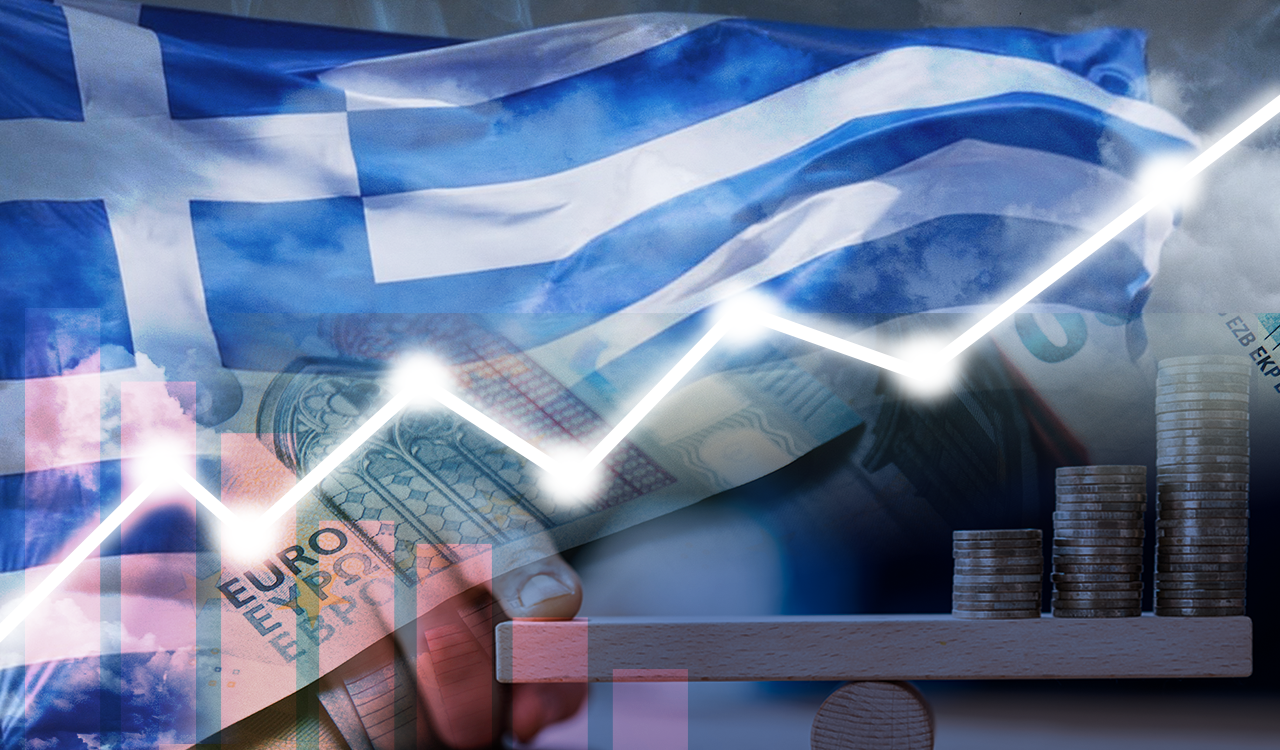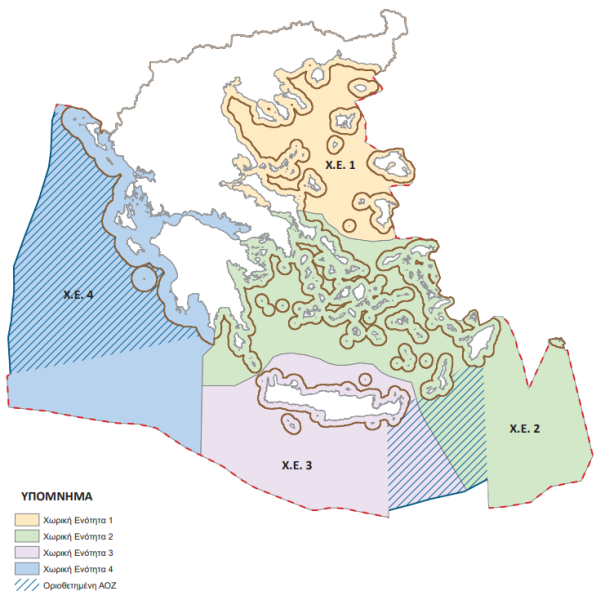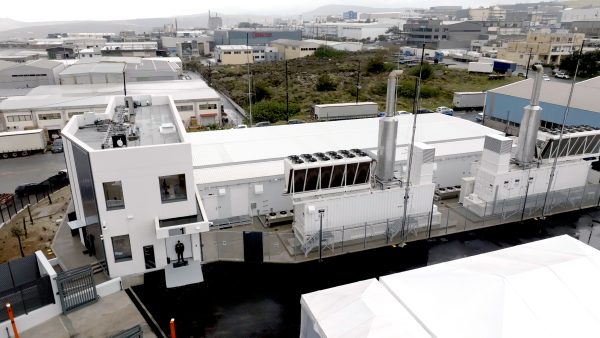
Despite the uncertainty in the international environment, Greece’s GDP grew by 2.1% year-on-year (seasonally adjusted data), in the first quarter of the year, at twice the rate compared to the Eurozone and one of the ten highest among European Union countries (EU-27), according to Alpha Bank’s analysis of the Greek economy. Investment, export activity and the construction sector maintained the strong momentum they had developed over the past two years and contributed significantly to the rise in economic activity. Particularly important, among the factors that led to the rise in GDP, is the increase in private consumption by 2.9% on an annual basis, thus contributing to the rate of economic growth by 2.1 percentage points. The analysis of the national accounting data of the first quarter of 2023 leads to some useful observations regarding how the main components of economic activity in our country are developing:
Investments
First, investment, i.e. gross fixed capital formation, continued to grow at a strong pace (8.2%) for the ninth consecutive quarter and contributed to GDP growth in the first quarter of 2023 by 1.1 percentage points. Although as a percentage of the GDP they remained much lower compared to the period before the economic crisis in the country (2007: 26%), they approached in the first quarter of the year – as well as in 2022 – 14%, returning to the levels of 2011.
Regarding the analysis of investments by category, investments in housing and transport equipment increased at a strong rate, by 48.4% and 42% respectively, while investments in other non-residential constructions by 8.1% and other investments by 4 .4%. It is noted that until 2013, investments in housing and other non-residential constructions constituted more than half of the total percentage of housing investments, to reach 41% in the first quarter of 2023 (housing: 14.6%, other constructions: 26.5%).
Exports
Second, net exports contributed positively to economic growth by 0.9%, for the first time since the third quarter of 2021, with the annual rise in exports, mainly of goods, significantly outstripping import growth. Specifically, exports of goods increased more strongly (10.6%) than the corresponding imports (3.2%), while exports of services increased milder (6.2%) than imports (12.7%).
This development goes hand in hand with the strengthening of the extroversion and competitiveness of the Greek economy over the last two years, as the share of internationally tradable goods and services rose, in the first quarter of the year, to over 48% of Gross Value Added (GVA) for the fifth consecutive quarter, which is the highest rate recorded in at least the last twenty years.
Thirdly, the upward trajectory of the general construction sector (residential and engineering projects) is highlighted, in terms of both RPA and investments. Specifically, investments in housing and other constructions contributed a combined 7% from 8.2 am of the rise in total investment.
Construction
At the same time, the contribution of construction to the rise in GDP remains positive from the first quarter of 2021 and amounted to 0.5% in the first quarter of this year as the industry’s output grew by nearly 20% year-on-year. Taking into account the negative contribution of industry (-0.4 p.p.), the contribution of the secondary sector to GPA growth was marginally positive (0.1 p.p.) in the first quarter of 2023, while the tertiary sector , which constitutes 78% of APA, had the largest positive contribution to its annual change (3.2 p.p.).
The product of the broader industry “trade-accommodation and catering-transportation” increased by 4% year-on-year, contributing 1 p.m. to GPA growth, while the largest contribution for the second consecutive quarter, equal to 2.2 p.m., was made by services excluding trade, tourism and transport, as they recorded an increase of 4.2%. The primary sector of the economy, which accounts for 4.3% of GDP, continued to make a marginally positive contribution for the third consecutive quarter (0.04 p.m.), as it increased by 1% compared to the first quarter of 2022.
Deceleration
Fourth, it is worth noting that on a quarterly basis GDP decreased marginally (-0.1%), primarily due to the reduction in inventories (-57%).
In conclusion, we can note that the slowdown in the annual growth rate of GDP, in the first quarter of 2023, compared to the seven previous quarters (Q2 2021-Q4 2022), is due on the one hand to the nullification of base results from the recessionary shock of the pandemic and on the other hand to inflation and its effect on disposable income and consequently on private consumption.
The dynamics of the Greek economy, however, despite the uncertainty that prevails at the global level and the upward trajectory – albeit decreasing – that follows the general level of prices, has strengthened in recent months. This fact is reflected in the revision, among others, of the recent forecasts of the Organization for Economic Co-operation and Development (OECD, June 2023), according to which, the GDP of Greece is estimated to increase by 2.2% in 2023, against 1, 1% which was the forecast of the same organization in November 2022.
Latest News

Greek €200M 10Y Bond to be Issued on April 16
The 3.875% fixed-interest-rate bond matures on March 12, 2029, and will be issued in dematerialized form. According to PDMA, the goal of the re-issuance is to meet investor demand and to enhance liquidity in the secondary bond market.

German Ambassador to Greece Talks Ukraine, Rise of Far Right & Tariffs at Delphi Economic Forum X
Commenting on the political developments in his country, the German Ambassador stressed that it was clear the rapid formation of a new government was imperative, as the expectations across Europe showed.

Athens to Return Confiscated License Plates Ahead of Easter Holiday
Cases involving court orders will also be excluded from this measure.

Servicers: How More Properties Could Enter the Greek Market
Buying or renting a home is out of reach for many in Greece. Servicers propose faster processes and incentives to boost property supply and ease the housing crisis.

Greek Easter 2025: Price Hikes on Lamb, Eggs & Sweets
According to the Greek Consumers’ Institute, hosting an Easter dinner for eight now costs approximately €361.95 — an increase of €11 compared to 2024.

FM Gerapetritis Calls for Unified EU Response to Global Crises at EU Council
"Europe is navigating through unprecedented crises — wars, humanitarian disasters, climate emergencies," he stated.

Holy Week Store Hours in Greece
Retail stores across Greece are now operating on extended holiday hours for Holy Week, following their Sunday opening on April 13. The move aims to accommodate consumers ahead of Easter, but merchants remain cautious amid sluggish market activity.

Green Getaway Ideas for Easter 2025 in Greece
Celebrate Easter 2025 in Greece the sustainable way with eco-farms, car-free islands, and family-friendly getaways rooted in nature and tradition.

Civil Protection Minister Details Summer Firefighting Plans at Delphi Forum
At the 10th Delphi Economic Forum, Minister of Climate Crisis and Civil Protection Yiannis Kefalogiannis discussed Greece's plans for the upcoming fire season.

How Shops and Markets Will Operate During Easter Holy Week
The Easter holiday schedule has been in effect since April 10, with retail stores open Palm Sunday, and most supermarkets also operating to meet consumer demand for Easter shopping









































 Αριθμός Πιστοποίησης
Αριθμός Πιστοποίησης